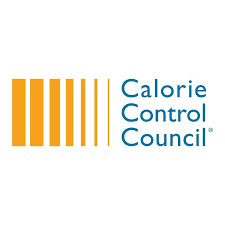Health - Purple Foxy Ladies originally published at Health - Purple Foxy Ladies
SAN DIEGO, March 6, 2024 (Newswire.com) - Addiction affects a person’s mental, emotional, social, physical and spiritual well-being. In the beginning of a person’s alcohol and/or drug use, it can often seem like one of the few solutions, and/or options. Many clients have little support from their family, friends and employers because of their use and addiction, which frequently leads to isolation and alienation. “It often starts as a coping mechanism to sooth emotional and mental stress,” said Mike Gallager, Shoreline Recovery Center’s Clinical Director. “Substance abuse is complete neglect of one’s own issues.”
It tends to unravel from there.
Gallager began his sober journey a decade ago and has been working as a clinician for the last five years at the North County-based facility. Like several staff and admin working at Shoreline Recovery Center, Gallager was previously a sober living resident and knows the repercussions of addiction well.
“In treatment, the consequences of their relationship to alcohol or drugs far outweighs the benefits of what it was producing for them and that’s when they come to us,” he said.
Many clients when they arrive aren’t just suffering from the addiction to drugs and/or alcohol, but are in need of additional help due to the physical neglect of their bodies.
As we know, addiction doesn’t just have physical consequences since drugs affect the body and brain.
“If you’re neglecting your physical self, you’re also neglecting your mental, social and emotional capacity,” Gallager said. “A lot of the biochemical processes are a function of something that happens in the brain.”
When a person stops drinking the brain doesn’t know that immediately and neurotransmitters excite the body, changing the chemical makeup of the brain and how it functions.
At Shoreline, the men are educated on preventative measures such as choosing healthier lifestyle choices and life skills that lead to a healthier lifestyle, including medication management, holistic practices and therapy.
“Emotional and psychological effects also contribute to poor heart health, depression and anxiety,” Gallager said. “All systems in the body suffer.”
Substance abuse only exacerbates mental health issues and complicates treatment with stress and exposure to trauma are often linked with drug use and addiction. Over time an addict’s heart begins to deteriorate, contributing to initial effects of heart disease and cardiovascular issues, including hypertension, as well as depression.
“In the short term it can change the stress response, and how a person experiences panic,” Kubota said.
Long term effects include cirrhosis of liver, gastrointestinal issues, esophageal varices (issues in their esophagus and lining of the stomach), stomach cancer and diabetes and can turn fatal with myocarditis and strokes.
At Shoreline Recovery Center, clients are exposed to a therapeutic approach that provides the necessary guidance necessary to overcome addiction to drugs, alcohol and other harmful substance use disorders.
Contact Information:Steven Esparza
Chief Executive Officer
[email protected]
6193631368
Original Source: Shoreline Recovery Center Treatment Facility Focuses on Educating Its Clients on the Importance of Heart Health Recovery
Health - Purple Foxy Ladies originally published at Health - Purple Foxy Ladies





